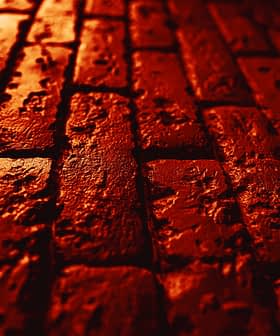Donations Help Fund Research and Award-Winning Production at UC Davis
Recent donations have allowed the leading U.S. olive oil research center to invest in new equipment, expand their olive groves and improve production.
 Firmin Berta donated $200,000 to the Olive Center. His brother left an additional $550,000 for the organization in his estate
Firmin Berta donated $200,000 to the Olive Center. His brother left an additional $550,000 for the organization in his estateTwo recent donations have helped turn 2019 into a very good year for the University of California, Davis Olive Center.
“We’ve never been stronger,” Dan Flynn, the center’s executive director, told Olive Oil Times.
The Olive Center has received $750,000 from Fermin and Irvin Berta, a pair of brothers. Fermin Berta graduated from UC Davis in 1957 and told Flynn that he wanted to give back to the university that gave him so much.
The United States has never been in a position to be able to produce research on olive oil at this level ever in its history.
“Firmin has donated $200,000 to us and his brother Irvin, who died in 2017, provided the Olive Center with $550,000,” Flynn said.
“Their support has allowed us to upgrade our research laboratory, recruit top graduate students, expand research orchards and upgrade olive oil storage capacity,” he added. “We recently received university approval to name our research laboratory for Firmin and Irvin Berta.”
The Olive Center is currently in the process of planting five acres of super high-density (SHD) olive groves that will be used to conduct research as well as produce olive oil, which is sold on the university campus and helps to fund the center.
See Also:Olive Center NewsWhile Arbequina, Arbosana and Koroneiki (the three most common SHD varieties) have been planted, some other experimental hybrids are also being cultivated. One of these is the Chiquitita, which is a cross between Arbequina and Picual.
“Then there are two other varieties that are also crosses that we are going to be collecting data on as the orchard matures,” Flynn said.
Researchers at the center will soon be studying the “architecture of the tree,” or which parts of the tree are the most productive in terms of output as well as phenolic content.
Funds from the donations have also been used to maintain the existing orchards and help the Olive Center improve the quality of the olive oil that it is currently producing. Efforts such as these have been partially attributed to the Olive Center’s two Gold awards at this year’s edition of the NYIOOC World Olive Oil Competition.
“It’s the first time that we’ve submitted oils to the NYIOOC,” Flynn said. “In fact, this year we submitted to a competition for the first time anywhere.”
“We were able to buy smaller stainless steel tanks, in which we were able to keep smaller batches and this gave us more precision in our blending,” he added. “[Berta] was also able to help us fund some pruning, which helped us to maintain the quality of the fruit and get more fruit off the tree.”
The Olive Center has also used some of the money to purchase new equipment for its laboratory and is providing more money for graduate fellowships, which Flynn said has helped the center to do more research.
“We’re at the point where Selina [Wang, the center’s research director] is co-authoring a paper that is getting published once a month on average, so the clip of research productivity has increased,” Flynn said.
“These papers usually start quite sometime before they are published so that is an indicator that for the last few years, we’ve been working at a very high level of efficiency, even though we are a self-supported center, to produce a lot of output,” he added. “The United States has never been in a position to be able to produce research on olive oil at this level ever in its history.”
Among the numerous pieces of research that UC Davis is undertaking, is looking at the multiple variables involved in processing olives into olive oil and trying to optimize certain inputs in order to get the maximum possible output.
The research is being conducted by Juan Polari, a Fulbright Scholar from Argentina who is receiving his PhD from UC Davis. Funding from the Bertas’ donation made recruiting high-caliber intellectuals, such as Polari, possible.
“In a lot of the research in this area, they might look at one variable, say the crusher or the malaxer, but what Juan’s research is doing is looking at multiple variables and how they interact with one another,” Flynn said.
“So, for example, looking at the crusher speed with the grid size in the crusher, along with malaxation time and temperature,” he added. “When you start combining these critical aspects of the process, you are able to get deeper insights into what can be done to increase phenolic content and get a better yield.”
It is this kind of research that Flynn believes will help to improve the American olive sector. New research findings will also be part of the curriculum for the Olive Center’s annual master miller course, which is taking place from September 23 to 25 at the Robert Mondavi Institute.
As it always does, the course will also cover the international olive oil industry, olive oil chemistry and harvesting and milling best practices.
Registration is open until September 20 and the price of the event is $875 from now until August 9, when it increases to $1,075.
“We have the greatest milling course on the planet,” Flynn said. “What makes this course unique is that it is grounded in science, as well as hands-on production at a real olive oil processing plant.”
A survey of attendees administered by the Olive Center found that 90 percent of respondents believed that the course material helped improve their quality and efficiency. Another 72 percent of respondents said that because of the course they were “highly likely” to increase their profitability.
Leandro Ravetti, an agricultural engineer and technical director at Modern Olives, Flynn and Wang will instruct the course, which has had hundreds of attendees over the years.
“I think it is that combination of scientific grounding as well as practical application and accessible language that the course is presented in that make it the best in the world,” Flynn said.
By the end of the course, Flynn and the Olive Center will be looking ahead to the next harvest in late October and early November, with the goal of continuing the Olive Center’s winning streak.








